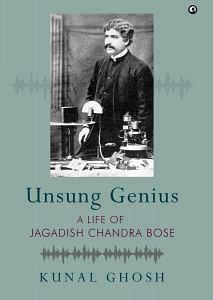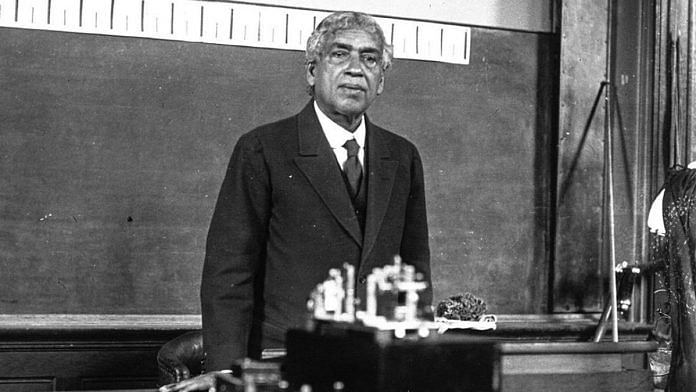In 1875, Jagadish passed Calcutta University’s entrance examination with a first division and earned a scholarship at the age of sixteen and began attending St. Xavier’s College for a degree in natural science. Father Lafont, a Jesuit priest of Belgian origin, who had come to India in 1865, was one of his teachers. Lafont had established a well-equipped laboratory for scientific experiments in the college and a makeshift meteorological observatory on the terrace of the college building. He would make notes of meteorological data in this observatory daily and once accurately predicted the arrival of a cyclone well in advance, so that precautionary measures could be initiated by the government, saving many lives and considerable property.
Lafont’s students, young Jagadish among them, were taught many a lesson in the college laboratory and observatory. They admired his dedication to teaching, his lucid expositions, and innovative experimental demonstrations. Jagadish’s performance at the college was not extraordinary but respectable. Though he was inspired by his teacher, he showed no external sign of it at that time. Later in life, after being well known as a scientist, he attributed his love for physics and experiments in general to this excellent teacher.
After he graduated from college with a B.A. degree in 1880, Jagadish was faced with a conflict. On one hand, his father’s financial affairs were in a sorry state and he was paying enormous amounts in interest to his creditors.
Jagadish understood that it was time to stand by his father and look for profitable employment. On the other hand, he wanted to pursue higher education in England. So, he decided to compete for the Indian Civil Service (ICS), which offered the most lucrative career at that time. For this he would need to travel all the way to London. The preparatory classes and the qualifying examination were held in London, and Indians who aspired for this service had to live in the city.
Also Read: How Punjabi journalists became ‘willing tool’ for extremists and police after Blue Star
There was another fact that might have influenced his decision; if one had the ability, it did not take long to qualify and get recruited into the ICS.
Surprisingly, Bhagaban’s refusal as regards that particular career was absolute—his son was to rule nobody but himself, to paraphrase Jagadish’s own words in this context. Why this was so requires an explanation and has much to do with the kind of education the British government had instituted for creating a special class of people, from whom many in the ICS were drawn. The architect of the colonial education policy, Thomas B. Macaulay, came to India in 1834 as a member of the council of the governor general, the top administrator of the country. Macaulay laid out the principles of a new education system with the concurrence of the then Governor General Lord Bentinck. Macaulay asserted:
“It is impossible for us, with our limited means, to attempt to educate the body of the people. We must at present do our best to form a class who may be interpreters between us and the millions whom we govern—a class of persons Indian in blood and colour, but English in tastes, in opinions, in morals, and in intellect. To that class we may leave it to refine the vernacular dialects of the country, to enrich those dialects with terms of science borrowed from the Western nomenclature, and to render them by degrees fit vehicles for conveying knowledge to the great mass of the population.”
To the credit of Macaulay, he had no disdain for the Indian languages or dialects; on the contrary, he wished his anglicized brown sahibs to ‘refine the vernacular dialects’. The English Education Act 1835 that was promulgated by Bentinck closely resembled the recommendations of Macaulay, and India’s first English-medium school named La Martiniere was established in the following year in Calcutta. However, the government, and the British businessmen residing in Calcutta and their Indian collaborators did not succeed in multiplying such English-medium schools, and their numbers remained few.
Meanwhile, the government and British businesses also needed a large number of clerks who were required to have only a rudimentary and working knowledge of English in addition to other skills, and therefore the authorities had to compromise and did not implement the education policy strictly.
Unknown to Macaulay, Indians themselves had started learning English and appreciating the suitability of the western education system for the times. These modernist Indian intellectuals, led by the famous social reformer Raja Ram Mohan Roy, had mobilized public opinion in favour of what they called ‘English education’. They established a number of schools in Calcutta that had modern syllabi, modelled on the pattern of western education, where English as a language was taught, but the medium of instruction was Bengali. This was in the first quarter of the nineteenth century, much before Macaulay arrived.
Two decades or so later, Ishwar Chandra Vidyasagar, a renowned scholar of Sanskrit who had taught himself English, came to the forefront of the education movement and set up more such modern, Bengali medium schools. It is this pattern of schooling that quickly spread all over Bengal Presidency, aided both by the government and public-minded individuals. Bhagaban C. Bose, father of Jagadish, was educated in one such school.
However, schools like the La Martiniere, no matter how few in number, made their mark. They turned out a number of Indians who proceeded to London and succeeded in qualifying for the ICS, competing with native Britishers. A few graduates of the Bengali-medium schools also competed for the ICS and qualified. Some of the ICS men aped the British as per Macaulay’s prescription, so much so that they appeared as caricatures. The British considered the ICS as the steel frame of the British empire in India, such was the loyalty and competence of the men.
However, one guesses from Bhagaban’s attitude and actions, that he considered the ICS as the steel chain that held the country’s subjects down for economic exploitation; he viewed with disdain such men of power, Indian in blood but anglicized in culture, and forbade his son Jagadish from joining their ranks.
Also read: How a brutal murder in 1852 convinced the British to make India’s Hijra community ‘extinct’
Bamasundari Devi, Jagadish’s mother, also raised stiff objections, not to any particular profession, but to her only son’s long absence, an unavoidable part of travel to Europe. She had lost her second son in his infancy and was especially attached to her only surviving son. In the end, she overcame her emotions and accepted her son’s ardent wish to pursue his education abroad. She even pledged to sell all her gold ornaments to finance his trip. After much debate, it was finally decided that Jagadish would go to England. This decision was aided by the fact, as mentioned before, that his father had by now recovered sufficiently from his bout of ill health and the mild stroke of paralysis, and could return to work; he would no longer be drawing a much-reduced salary and Bamasundari’s gold would remain intact. The family would live more frugally and pool in all available resources.
Jagadish decided to pursue medicine as his career of choice in England and received his father’s approval. His journey to England marked the end of the first phase of Jagadish’s life. He had now reached maturity and aspired to serve his motherland while standing by his family, who were now leading a bare existence and drowning in debt. He wanted to train to be a doctor abroad and return to India to serve his country and do his filial duty. He had learnt to admire the senior Bose despite his follies.
To understand Jagadish’s attitude, motivation, and vision at the outset of his career, it would be appropriate to quote from what he was to say decades later: “My father was one of the earliest to receive the impetus characteristic of the modern epoch as derived from the West. And in his case, it came to pass that the stimulus evoked the latent potentialities of his race for evolving modes of expression demanded by the period of transition in which he was placed. They found expression in great constructive work… Every one of his efforts failed and the crash came… A failure? Yes, but not ignoble or altogether futile. Since it was through the witnessing of this struggle that the son learned to look on success or failure as one, to realize that some defeat was greater than victory. And if my life in any way proved to be fruitful, then that came through the realization of this lesson… And it is on the wreck of a life like his and many such lives that will be built the Greater India yet to be.”

This excerpt from Kunal Ghosh’s ‘Unsung Genius: A Life of Jagadish Chandra Bose’, has been published with permission from Aleph Book Company.



